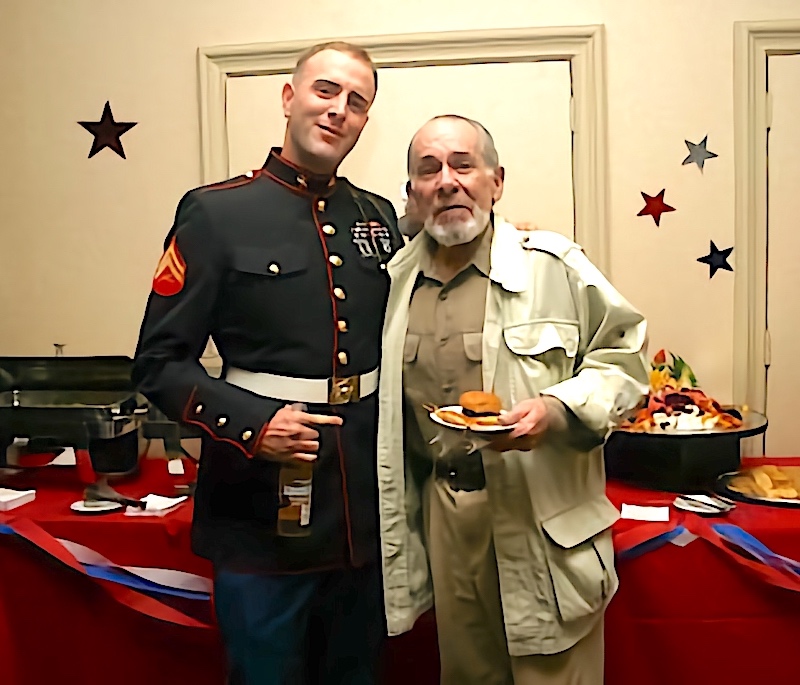Student Blog
Chelsea

Ode to Thanksgiving ⟩
November 28, 2011, by Chelsea
I am thankful for . . .
O pportunity to be at USC
C aring family
C razy friends
U ndergraduate memories at USC
P assionate teachers
A rt walks in downtown
T raveling to the snow
I nteresting classes
O utdoor ice skating rinks
N ot having school for a month after the semester ends
A mazing books
L os Angeles
T hanksgiving dinner
H ome in San Diego
E very sunset
R uns on the beach
A ctive lifestyle
P laying tennis
Y oga
⋯

A Salute to Veterans ⟩
November 14, 2011, by Chelsea
Community Getting Involved What are OS/OT?
Two weeks ago I went to an event hosted by the USC Division of Occupational Science and Occupational Therapy and the USC Center for Innovation and Research on Veterans & Military Families called “A Wounded Warrior’s Experience and Physical Rehabilitation.” This event featured Medal of Honor recipient Sergeant First Class Leroy A. Petry and surgeon Colonel James Ficke, MD. Four years ago, Petry was deployed to Afghanistan, where he lost his right hand when he tossed away a grenade that was near him and two fellow soldiers. Now, Petry has an advanced prosthetic hand capable of detecting outside resistance and that responds to his muscle contractions and skin receptors. After having occupational and physical therapy, Petry can now pinch, grab and rotate his wrist. It is amazing to me that despite the loss of his right hand, Petry re-enlisted to help the wounded and be a part of their support team. I admire his resilience and his determination to help others. It is so incredible to see how important it is for some people to get back to pursuing their most meaningful occupations. Petry and many other veterans demonstrate such selflessness. As occupational therapy students, it really helps to hear people such as Petry speak because it helps us to grasp the disability experience better and allows us to understand our future clients better.
Occupational therapists play a crucial role in the lives of many war veterans, which is why the USC Occupational Therapy program has honored veteran students with several events throughout November. Since President Obama has announced the withdrawal of all our troops from Iraq by the end of the year, it is likely that occupational therapy will be in high demand in veteran’s hospital and other settings where veterans are prevalent. It will be difficult for many of these men and women who served in Iraq to transition back into civilian life, when their most meaningful occupation for the past few years has been fighting for their country. As OTs, it will be our job to help these veterans find occupations that are meaningful to them and give them the means to pursue these occupations despite any physical and/or mental disabilities they may come home with. The soldiers have done their part in helping our country, now it is our turn to help them.

⋯

Veuve Clicquot Polo Classic ⟩
October 24, 2011, by Chelsea
Classes Living in LA What are OS/OT?
In OT 550 “Foundations of Occupational Science” we had an assignment last week that was to attend a sporting event instead of going to class . . . pretty cool, right? The purpose of the assignment was to examine the components that comprise play for adults, such as intrinsic motivation, self-actualization, creativity, lack of seriousness, etc., and also to see how sporting events are representations of political, social, and religious rifts in society. Well, I decided to go to a sporting event I had never seen before: polo. The Veuve Clicquot Polo Classic takes place at Will Rogers State Park in Pacific Palisades. Ladies in broad rimmed hats scattered the lawn surrounding the field holding glasses of champagne in one hand and a golden Veuve Clicquot sun umbrella in the other. Men in suits and wearing Panama hats lounged in their lawns chairs. Needless to say, it is quite a classy affair. For only $15 you get a day full of entertainment, socializing, and lounging in the sun! In class the following week we discussed our experiences and related them to the themes in the readings. It was so interesting hearing about everyone’s experiences and trying to collaborate with the whole class to reach an agreement about what constitutes play. Some say we work to play, and some say we play to work because without play we would get burnt out. And then there are those that get paid to do something they truly love and never really “work” a day in their lives. Once I become an OT, that will be me!
⋯

“Flowing” ⟩
September 26, 2011, by Chelsea
Have you ever done something that was so engaging it made you completely forget about everything else on your mind? In occupational therapy, we call this the “flow” state because it is the point at which every move you make has a seamless connection with everything that precedes it and follows it. It is a state of deep concentration and great autonomy, in which the person experiences a perfect balance between their skill level and the level of difficulty. Why do we seek out these experiences? The result is explicit emotional satisfaction.
I experienced “flow” last weekend.
It was in San Diego, my hometown, where I had this experience after my friends and I decided to go wakeboarding. Being an avid snowboarder, wakeboarding came naturally to me, yet it was still a new and invigorating sensation. From the moment the boat lifted me out of the water, I was in the zone. It felt so awesome to be carving through the cool water with the wind whipping across my face. And the best part was being able to completely clear my mind of everything — for a few minutes I had no deadlines, no papers to think about, and no places to be . . . just sheer bliss. I can’t wait to help my future patients find their flow state! As for you . . . you may already know — what makes you flow?
⋯

My First OT Elective ⟩
September 19, 2011, by Chelsea
The second year of the Occupational Therapy program at USC gives students the opportunity to take their first OT elective course — their first opportunity to choose a course they are interested rather than having it be required! After doing my third Level I Fieldwork in hand therapy, I had a heightened interest in the field and in the prospect of getting certified to be a hand therapist. Although there were many awesome courses to choose as my one elective this fall, I had no trouble making the decision to take Hand Rehabilitation with Lisa Deshaies.
So far it has been incredible and is “hands down” my favorite class! We have learned so much practical knowledge about the anatomy of the hand and all kinds of different hand deformities and injuries. Professor Deshaies keeps the class interesting by reading us excerpts that relate to the hand in Sports Illustrated, showing us videos of the progress and personal struggle of a patient she treated, bringing in actual hand and arm cadavers to get a more “hands on” anatomy understanding, and leading great class discussions. Currently, I’m working on a Hand Observation Log for which I have been observing how people use their hands daily for functioning, communicating, and other daily activities. Surprisingly, you can tell a lot about a person by how they are using their hands. Some of the best aspects of the class are that the class is at night so I don’t need to wake up early, and it is credit/no credit making it less stressful than my other courses . . . however, it can be a bit of a “handful”!
⋯





